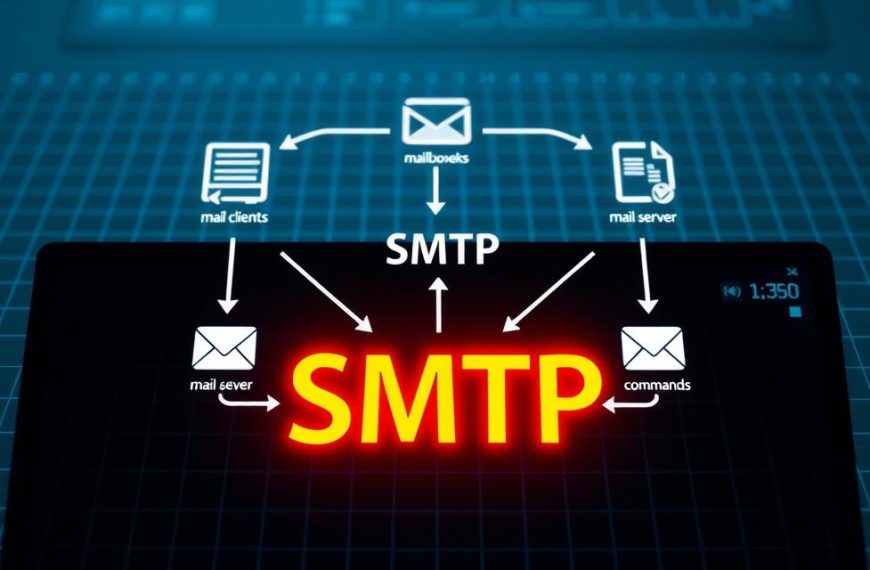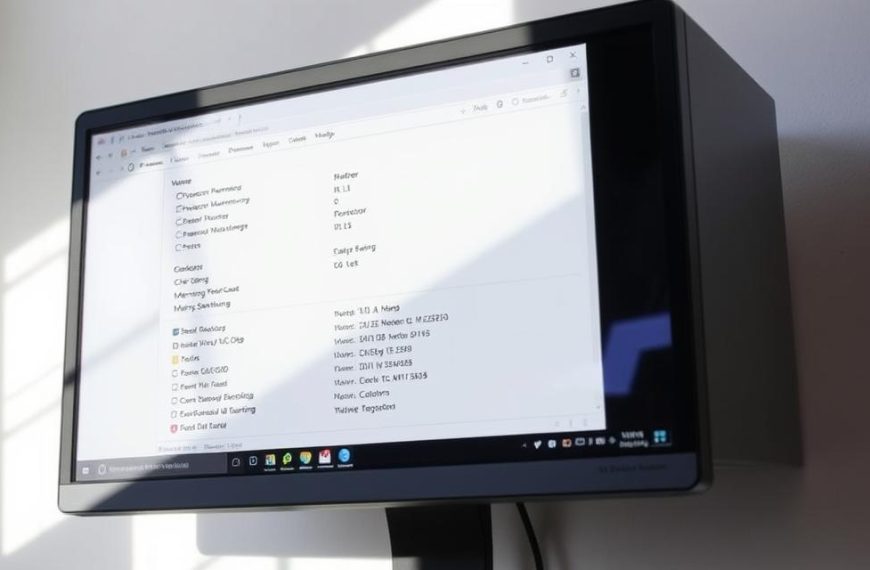In today’s digital age, privacy and security are top priorities. A proxy server acts as an intermediary between users and the internet, masking IP addresses to enhance privacy. It serves as a gateway, filtering and forwarding web requests on behalf of clients.
These servers play a vital role in organizational security by creating a protective barrier against cyber threats. They also improve network performance through caching and load balancing, ensuring faster access to frequently visited sites.
Common use cases include accessing geo-restricted content, anonymizing browsing activities, and managing corporate traffic efficiently. Understanding how a proxy server works can help users make informed decisions about their online safety and efficiency.
Introduction to Proxy Servers
Modern cybersecurity relies heavily on intermediary tools to safeguard online activities. Among these, proxy servers play a pivotal role. They act as a bridge between users and the web, managing internet traffic while enhancing security.
These systems intercept and process HTTP/HTTPS requests, ensuring that internal networks remain protected. By filtering web content, they prevent unauthorized access and block inappropriate sites, such as social media platforms, in organizational settings.
Schools and businesses often use proxy servers to enforce policies and monitor activities. For example, schools restrict access to certain websites, while companies track employee browsing to maintain productivity.
Another critical feature is IP masking. This prevents direct exposure to external servers, adding an extra layer of privacy. By rerouting requests, these tools ensure that user identities remain hidden, making them indispensable in today’s digital landscape.
How Does a Proxy Server Operate?
Understanding the mechanics of a proxy server can simplify how you view online interactions. It acts as an intermediary, managing the flow of data between a client and the internet. Here’s how it works:
When a user sends a request, it first goes to the proxy server. The server then forwards this request to the target website. After receiving the response, it sends the data back to the user. This process ensures that the user’s identity remains hidden.
One key feature is IP address substitution. The proxy server replaces the user’s original IP address with its own. This makes it appear as if the request is coming from a different location, such as another country. It’s a powerful tool for maintaining anonymity.
Security is another priority. Proxies use encryption protocols like SSL/TLS to protect data during transmission. This ensures that sensitive information remains secure, even over public networks.
Efficiency is also enhanced through caching. Frequently accessed content is stored locally on the proxy server. This reduces bandwidth usage and speeds up future requests for the same content.
For example, a corporate proxy server might block access to entertainment sites like Netflix during work hours. At the same time, it caches internal resources to improve productivity. This dual functionality makes it a valuable asset for organizations.
To learn more about how proxy servers work, check out this detailed guide.
Benefits of Using a Proxy Server
In an era where online threats are rampant, leveraging intermediary tools is essential. These tools offer numerous benefits, from enhancing security to ensuring privacy and enabling access to restricted content. Let’s explore these advantages in detail.
Enhanced Security
One of the primary benefits is improved security. These tools act as a firewall, blocking direct exposure to hackers. They filter out malicious domains and phishing attempts, ensuring safer browsing. For organizations, this means protecting sensitive data from cyber threats.
Privacy and Anonymity
Maintaining privacy is another key advantage. By hiding user IP addresses, these tools prevent tracking by advertisers or ISPs. They also enable anonymous browsing, which is crucial for whistleblowers or journalists. For instance, tools like TOR rely on this functionality to protect user identities.
Access to Location-Specific Content
These tools also provide access to region-locked services. By spoofing IP locations, users can bypass geo-restrictions. For example, a U.S. user can access BBC iPlayer by connecting through a UK-based intermediary. This feature is particularly useful for streaming platforms like Netflix.
| Feature | Benefit |
|---|---|
| Firewall Protection | Blocks hackers and malicious domains |
| IP Masking | Ensures privacy and anonymity |
| Geo-Spoofing | Access region-locked content |
For more insights on how these tools enhance security, check out this detailed guide.
Types of Proxy Servers
Different tools serve unique purposes in managing online interactions. Each type of intermediary system is designed to address specific needs, from enhancing privacy to optimizing performance. Below, we explore the most common types proxy servers and their functionalities.
Forward Proxy
Often used within organizations, this tool controls employee web access. For example, it can block social media sites during work hours. It acts as a gateway between internal users and the internet.
Transparent Proxy
This type operates without requiring user configuration. It’s commonly used in public networks to filter content or enforce policies. Users may not even realize it’s in place.
Anonymous Proxy
Designed to hide user identities, this tool masks IP addresses. It’s ideal for those seeking privacy while browsing. However, it may still reveal that a proxy is being used.
High Anonymity Proxy
This advanced version ensures complete anonymity. It frequently changes IP addresses, making tracking nearly impossible. It’s often used by journalists or activists.
Distorting Proxy
This tool provides a false IP address to the target server. It’s useful for bypassing geo-restrictions while maintaining some level of anonymity.
Data Center Proxy
Hosted in data centers, these proxies offer high speed and reliability. They’re commonly used for tasks requiring fast connections, such as web scraping.
Residential Proxy
Using real device IPs, this type is ideal for tasks like ad verification. It’s less likely to be flagged as a bot, making it suitable for sensitive operations.
Public Proxy
Free to use, these proxies are accessible to anyone. However, they often come with risks like slow speeds and potential data leaks.
Shared Proxy
Multiple users share the same IP address. While cost-effective, it may lead to slower performance due to high traffic.
SSL Proxy
This tool encrypts and decrypts traffic, ensuring secure communication. It’s preferred by platforms like Google for maintaining SEO rankings.
Rotating Proxy
It assigns a new IP address for each request. This makes it ideal for tasks requiring multiple identities, such as web scraping.
Reverse Proxy
Positioned in front of backend servers, this type manages incoming requests. It’s essential for load balancing and protecting servers from direct exposure.
| Type | Primary Function |
|---|---|
| Forward Proxy | Controls internal web access |
| Transparent Proxy | Filters content without user setup |
| Anonymous Proxy | Hides user IP addresses |
| High Anonymity Proxy | Ensures complete anonymity |
| Distorting Proxy | Provides false IP addresses |
| Data Center Proxy | Offers high-speed connections |
| Residential Proxy | Uses real device IPs |
| Public Proxy | Free but risky |
| Shared Proxy | Cost-effective for multiple users |
| SSL Proxy | Encrypts and decrypts traffic |
| Rotating Proxy | Assigns new IPs per request |
| Reverse Proxy | Manages incoming server requests |
Why Should You Use a Proxy Server?
Efficiently managing online resources is crucial for modern businesses. By leveraging intermediary tools, organizations can achieve significant cost savings and enhanced security. One of the primary advantages is the ability to reduce bandwidth usage through caching. Frequently accessed content is stored locally, minimizing data transfer and speeding up access times.
Another key benefit is monitoring employee activity. These tools help organizations enforce acceptable use policies, preventing data leaks and productivity loss. For example, companies can block access to non-work-related sites during office hours, ensuring focus remains on critical tasks.
In regions with strict internet censorship, these tools provide a way to bypass restrictions. Users can access blocked platforms, such as Wikipedia or news sites, ensuring uninterrupted access to information. This is particularly valuable for journalists and researchers operating in restrictive environments.
Market researchers also benefit from these tools. By masking IP addresses, they can scrape competitor websites without triggering bans. This allows for efficient data collection and analysis, giving businesses a competitive edge.
| Use Case | Benefit |
|---|---|
| Bandwidth Savings | Reduces costs through caching |
| Employee Monitoring | Enhances productivity and security |
| Bypassing Censorship | Access restricted content globally |
| Market Research | Scrape data without IP bans |
Incorporating these tools into your strategy ensures a balance between efficiency, security, and accessibility. Whether you’re managing a corporate network or conducting research, they offer versatile solutions tailored to modern needs.
Proxy Server Risks
While intermediary tools offer numerous benefits, they also come with inherent risks. Free services, in particular, can compromise user security and expose sensitive data. Understanding these dangers is crucial for making informed decisions.
Free services often log user activity and sell it to third parties. This practice not only violates privacy but also increases the likelihood of data breaches. For example, platforms like Proxify have been known to inject ads or even steal credit card details.
Another significant risk is the lack of encryption. Unencrypted connections expose credentials to potential hackers. SSL stripping attacks are common, where attackers downgrade secure HTTPS connections to unsecured HTTP, leaving users vulnerable.
“The use of unverified tools can lead to severe consequences, including identity theft and financial loss.”
Law enforcement agencies can also subpoena server records, compromising user anonymity. This makes it essential to choose trusted, audited services like BrightData or Oxylabs.
| Risk | Mitigation Strategy |
|---|---|
| Data Logging | Use paid, audited services |
| SSL Stripping | Ensure HTTPS encryption |
| Ad Injection | Avoid free services |
| Legal Subpoenas | Choose providers with strict no-log policies |
By understanding these risks and implementing proper mitigation strategies, users can safeguard their online activities effectively.
Choosing the Right Proxy Server
Selecting the right intermediary tool can significantly impact your online experience. Evaluating encryption standards, uptime, and geographic coverage ensures a secure and reliable connection. These factors are critical for both personal and organizational use.
Matching the proxy server type to your specific needs is essential. For example, residential proxies are ideal for ad verification, while reverse proxies excel in load balancing for networks. Understanding your use case helps narrow down the options.
Prioritize providers with strict no-logs policies to safeguard your privacy. Reputable services like NordVPN’s Meshnet ensure that your data remains confidential. This is particularly important for sensitive operations or industries with strict compliance requirements.
Cost is another factor to consider. Data center proxies are more affordable, starting at $0.50/GB, while residential proxies can cost up to $15/GB. Balancing your budget with performance needs is key to making an informed decision.
Finally, use a checklist to evaluate potential providers. Test speed, assess customer support quality, and ensure compatibility with tools like Scrapy. This approach guarantees a seamless integration into your workflow.
Proxy Servers and Online Privacy
Online privacy has become a cornerstone of digital safety in recent years. High anonymity tools, like TOR, play a significant role in safeguarding user data. These systems erase user information before connecting, ensuring complete anonymity.
However, there are limitations. Even with IP masking, browser fingerprinting can still identify users. This technique tracks unique browser configurations, making it harder to remain anonymous. To counter this, pairing these tools with VPNs adds an extra layer of privacy. For example, combining ProtonVPN with a Squid proxy creates a multi-layered shield.
For organizations, compliance with regulations like GDPR is critical. These tools help anonymize EU user data collection, ensuring adherence to legal standards. This is especially important for businesses operating in multiple regions.
“Combining tools like VPNs and proxies ensures a robust privacy framework, protecting users from tracking and data breaches.”
| Challenge | Solution |
|---|---|
| Browser Fingerprinting | Use VPNs alongside proxies |
| Data Collection | Anonymize data for GDPR compliance |
| IP Masking Limitations | High anonymity proxies like TOR |
By understanding these challenges and solutions, users can enhance their online privacy effectively. Whether for personal use or organizational compliance, these tools offer valuable protection in an increasingly connected world.
Proxy Servers in Organizational Settings
In corporate environments, maintaining a secure and efficient workflow is essential. Many organizations rely on intermediary tools to block distracting websites and monitor internal network traffic. This ensures that employees remain focused while safeguarding sensitive data.
For example, Walmart uses Zscaler to secure its global workforce of 2.3 million employees. This setup acts as a firewall, filtering out malicious content and preventing unauthorized access. It also integrates with SIEM tools like Splunk for real-time threat detection.
“Implementing these tools has significantly reduced security incidents and improved productivity across our organization.”
Balancing productivity and privacy is crucial. Organizations should disclose monitoring practices in employee agreements. This transparency builds trust while ensuring compliance with privacy regulations.
By leveraging these tools, companies can create a secure and efficient work environment. Whether it’s blocking distractions or detecting threats, they play a vital role in modern corporate settings.
Future of Proxy Servers
Emerging innovations are transforming the landscape of intermediary systems. These advancements promise to enhance security, optimize performance, and redefine how we manage online connections.
One significant development is AI-driven tools. These systems use machine learning to automatically block zero-day exploits. By analyzing patterns in real-time, they provide proactive protection against evolving threats.
Another breakthrough is the integration of 5G technology. Low-latency connections enable efficient management of IoT devices. This ensures seamless communication across vast networks, from smart homes to industrial setups.
Decentralized models are also gaining traction. Blockchain-based systems, like Orchid, offer enhanced privacy and reliability. These platforms distribute data across multiple nodes, reducing the risk of single-point failures.
| Innovation | Benefit |
|---|---|
| AI-Driven Proxies | Proactively block zero-day exploits |
| 5G Integration | Enable low-latency IoT management |
| Decentralized Models | Enhance privacy and reliability |
These advancements ensure that intermediary services remain at the forefront of digital innovation. By adopting these tools, users can stay ahead in an increasingly connected world.
Conclusion
Effective online management requires tools that balance anonymity, security, and performance. A proxy server offers these benefits, ensuring safer browsing and optimized access to resources. By masking IP addresses, it enhances privacy and protects against potential threats.
Before choosing a tool, assess your specific needs. Consider factors like budget, technical expertise, and intended use. This ensures you select the right solution for your requirements.
Finally, regularly audit your configurations to address evolving risks. Staying proactive helps maintain a secure and efficient online experience.














